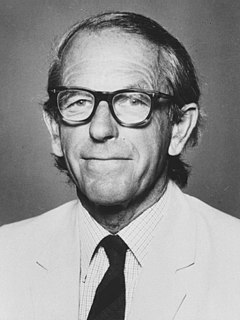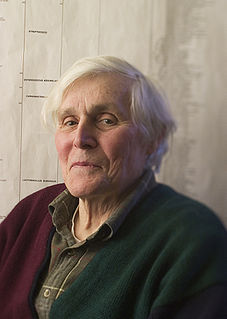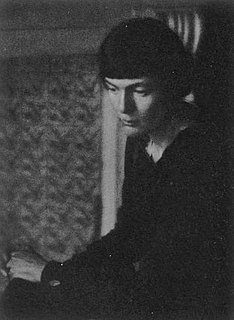A Quote by Lewis Thomas
We live in a dancing matrix of viruses; they dart, rather like bees, from organism to organism, from plant to insect to mammal to me and back again, and into the sea, tugging along pieces of this genome, strings of genes from that, transplanting grafts of DNA, passing around heredity as though at a great party.
Related Quotes
A DNA sequence for the genome of bacteriophage ?X174 of approximately 5,375 nucleotides has been determined using the rapid and simple 'plus and minus' method. The sequence identifies many of the features responsible for the production of the proteins of the nine known genes of the organism, including initiation and termination sites for the proteins and RNAs. Two pairs of genes are coded by the same region of DNA using different reading frames.
Recently, results of the Human Genome Project have shattered one of Science's fundamental core beliefs, the concept of genetic determinism. We have been led to believe that our genes determine the character of our lives, yet new research surprisingly reveals that it is the character of our lives that controls our genes. Rather than being victims of our heredity, we are actually masters of our genome.
Over millions of years the viruses in our genome mutate more and more so the look less and less and less recognizable as viruses and so if there was a virus that infected our pre mammal ancestors like 250 million years ago, which it probably did, we can't see it because it just looks totally random.
Junk turns the user into a plant. Plants do not feel pain since pain has no function in a stationary organism. Junk is a pain killer. A plant has no libido in the human or animal sense. Junk replaces the sex drive. Seeding is the sex of the plant and the function of opium is to delay seeding. Perhaps the intense discomfort of withdrawal is the transition from plant back to animal, from a painless, sexless, timeless state back to sex and pain and time, from death back to life.





































